Astronomy
-
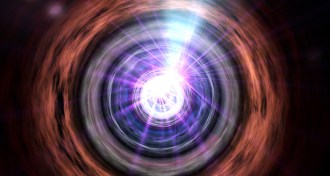 Astronomy
AstronomySource of blazars’ super brightness comes into focus
Astronomers take a close look at a blazar, a galaxy whose central black hole emits gamma rays and other high-energy material toward Earth.
By Andrew Grant -
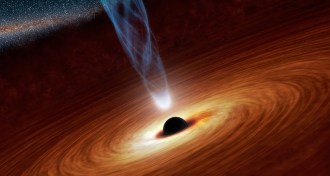 Astronomy
AstronomyMassive black hole lurks in lightweight galaxy
A heavyweight black hole grew to weigh as much as 7 billion suns within the first 2 billion years after the Big Bang.
-
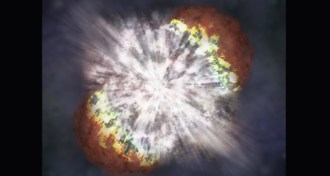 Astronomy
AstronomyExploding star breaks record for brightest supernova
A recent supernova shines with the light of 600 billion suns.
-
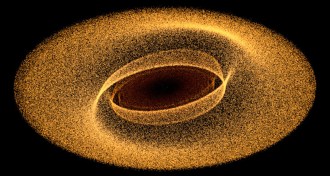 Astronomy
AstronomyBeta Pictoris planet makes waves
Spiral waves whip through the belt of debris around a young star — and it’s all a giant planet’s fault.
-
 Life
LifePuzzling cosmic signals, processed food defined and more reader feedback
Readers sort out a definition for processed food, discuss the benefits of tinkering with human DNA and more.
-
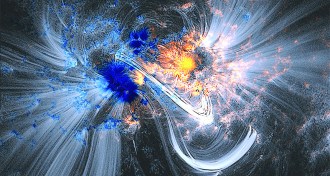 Astronomy
AstronomyA loopy look at sunspots
In visible light, sunspots look like dark blotches that often expel flares of searing plasma. NASA’s Solar Dynamics Observatory offers a different view.
-
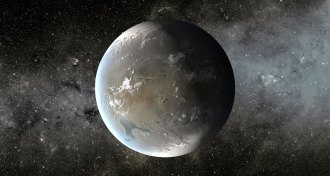 Astronomy
AstronomySuper-Earths are not a good place for plate tectonics
The intense pressures inside super-Earths make plate tectonics less likely, new research suggests.
-
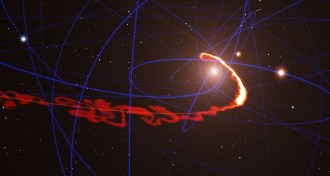 Astronomy
AstronomyAdvice to a baby planet: Avoid black holes
A dust cloud looping around the Milky Way’s supermassive black hole might have once been an infant planet.
-
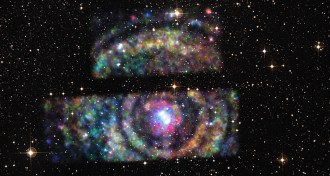 Astronomy
AstronomyX-ray rings reveal neutron star’s distance
Concentric X-ray rings around a neutron star help astronomers triangulate the star’s distance.
-
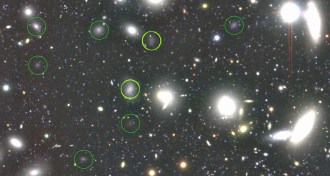 Astronomy
AstronomyDark galaxies grow in abundance
Nearly 1,000 shadowy galaxies lurk in a nearby cluster, some of which are as massive as the Milky Way and yet have only 0.1 percent the number of stars.
-
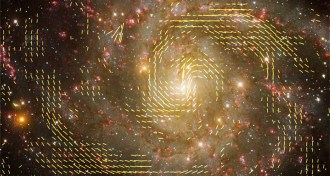 Astronomy
AstronomyMagnetic ‘glue’ helps shape galaxies
Galaxy-wide magnetic fields may play a role in shaping the spiral arms of gas and stars.
-
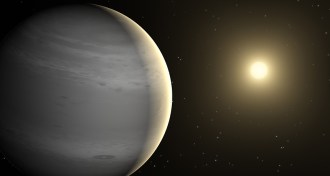 Astronomy
AstronomyBig exoplanet may be surrounded by helium
Warm Neptune-sized exoplanet might have atmospheres filled with helium.